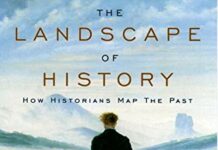
Ebook Info
- Published:
- Number of pages:
- Format: PDF
- File Size: 2.36 MB
- Authors: John Lewis Gaddis
Description
“The best education in grand strategy available in a single volume . . . a book that should be read by every American leader or would-be leader.”—The Wall Street JournalA master class in strategic thinking, distilled from the legendary program the author has co-taught at Yale for decadesJohn Lewis Gaddis, the distinguished historian of the Cold War, has for almost two decades co-taught grand strategy at Yale University with his colleagues Charles Hill and Paul Kennedy. Now, in On Grand Strategy, Gaddis reflects on what he has learned. In chapters extending from the ancient world through World War II, Gaddis assesses grand strategic theory and practice in Herodotus, Thucydides, Sun Tzu, Octavian/Augustus, St. Augustine, Machiavelli, Elizabeth I, Philip II, the American Founding Fathers, Clausewitz, Tolstoy, Lincoln, Wilson, Franklin D. Roosevelt, and Isaiah Berlin. On Grand Strategy applies the sharp insights and wit readers have come to expect from Gaddis to times, places, and people he’s never written about before. For anyone interested in the art of leadership, On Grand Strategy is, in every way, a master class.
User’s Reviews
Reviews from Amazon users which were colected at the time this book was published on the website:
⭐A Journey in Search of Deep BalanceStrategy is a slippery word; being at once abstract and concrete, and massively scalable. Appending the modifier grand to it pushes it into the realm of esoterica, which perhaps suits just fine those whose business it is to teach it. Gaddis, in one rather short book succeeds in lassoing all of those issues and binding them together like the legs of a steer that has just been roped, making them unable to slip out from the reader’s grasp. Gaddis takes us on an historical journey, not in search of principles but in search of balance. Although he never mentions it, his approach is akin to the concept of dialectical materialism; thesis, antithesis, and ultimately synthesis. He helps the reader find synthesis through balancing incompatible and contradictory ideas. Grand strategy is both personal and specific and broad and abstract; men with specific character traits make decisions that affect whole populations and history. There are no principles, only mental states, balancing antonyms. He uses the metaphor of foxes, who know many things with hedgehogs who know one big thing. As he proceeds through history, his narrative is a bit like a murder mystery; which of these approaches is superior? Who dunit? He leads us step by step through the evidence. He finds much guilt along the way, but in the end takes us to a place where we find new criteria for judgment. I won’t short circuit the plot by giving away the verdict, but I can say that while Gaddis is successful in finding clarity, it is not something that can be expressed quickly and easily.If I had a critique of the book it would be that I was disappointed that Gaddis does not take on more recent examples such as Vietnam or even Afghanistan and Iraq. Nor does he address the current geopolitical struggle between the United States and China. There is some wisdom to this, as it reflects the guidance Admiral Stan Turner gave to the Naval War College Strategy and Policy faculty in 1972 that to avoid the emotions that would cloud any discussion of Vietnam in the classroom, the curriculum should employ cases from more distant history. Certainly, in this book as in the Strategy and Policy course at Newport, one can detect underlying logic that attended the Peloponesian War in current events, but that synthesis is left to the reader. Nonetheless, I would have liked to see him parse George W Bush and his advisors the way he did Pericles and Lincoln.This is an enjoyable book, if such an adjective is possilbe for one on grand strategy, and is especially so if the reader has already read Lawence Friedman’s book on strategy.
⭐John Lewis Gaddis presents an interesting collection of stories in “On Grand Strategy” (2018) framing strategic thinking in the context of Western political thought using the “great books” tradition common in humanism. Gaddis leads the reader through a Sargasso Sea of anecdotes to something a bit unexpected: this is not a book on strategy. It is a lengthy, touching eulogy to Gaddis’ friend Isaiah Berlin.I describe this book as a collection of stories for a reason. The political theory guiding this book is more Aesopian than Aristotelian. The word “strategy” as used in this book is not expressed in a practical sense but rather as a way of thinking about problems and how to solve them. Throughout the book, Gaddis uses the framing device of the fox and the hedgehog, a parable used for the argument of a 1953 book of that name by Isaiah Berlin.Gaddis relies extensively on Thucydides, Machiavelli, and Lincoln to add a gilded sheen to the frame around this homage to Berlin. However, it is not a book on strategy. It is an aphorism on balance, a cautionary tale against unconstrained boldness but also indecisive timidity, while primarily serving as a panegyric to Isaiah Berlin.If one feels I am hammering the Isaiah Berlin angle a bit too forcefully, then perhaps this book is not for you. Gaddis treats each episode in this book as a foundational element to his grand argument, which is finally presented in a somewhat unsatisfying manner in the book’s last chapter, unsurprisingly entitled “Isaiah Berlin.”
⭐John Lewis Gaddis is a genius. Whether genius means to you an extraordinary intellectual power as manifested in creative activity, a distinctive character or spirit, or one who influences others for truth and good—Gaddis is all those things and so much more, as his newest—and perhaps final—book “On Grand Strategy,” proves.I will acknowledge here that I am a most biased reviewer: I was a student of Professor Gaddis in his Yale seminar “Grand Strategy” as well as served as one of his teaching assistants in his undergraduate class “History of the Cold War.” And I remain friends with him. But I think the source of my bias is a virtue to you: insight based upon experience and a personal relationship of profound consequence (at least to me).Some reviewers have commented that “On Grand Strategy” is a “meandering, mostly thematic route through a variety of topics such as Athenian democracy; Caesar’s mentorship of his successor, Octavian; and the interplay between religious belief, nationalism, and the motiving power states have over their citizens” while concluding that such “frivolous, cryptic anecdotes that bounce aimlessly across time periods and characters…ensures such [strategic] questions remain unanswered” (Alexander Kirss, “Review: Does Grand Strategy Matter?” in Strategic Studies Quarterly, Vol. 12 No. 4, pg 116-132). While somewhat true, this is inaccurate—such critique misses the point: Grand Strategy does matter and Gaddis approaches a weighty and infinitely nuanced idea with a graceful elegance and lifetime of experience in an approachable and readable way.Rather, I tend to side with Gordon M. Goldstein in his “Washington Post” review of “On Grand Strategy,” “How great leaders make good and terrible military decisions.” Goldstein acknowledges that the book illuminates “misapplied strategic ambition and miscalculated military intervention” and “bind ancient and modern history to provide practical guidance to the contemporary strategist.”While a renowned historian of the Cold War and famously the official biographer of George Kennan (“George F. Kennan: An American Life”), “On Grand Strategy” will be a classic long after the Cold War has faded from human memory. Dashing, moving, witty, even sly—“On Grand Strategy” is a magisterial work that I give to you, the dear reader and strategist, my highest unqualified recommendation. Read this book!
⭐My son found this quite interesting – he’s very into politics and history – but was disappointed it didn’t seem to cover much ‘strategy’. Grand or otherwise.He was impressed with the author’s wide knowledge but not with his style of writing – “confusing and a bit incoherent stroke rambling”!!But he is going to check out other works by the author so it can’t be all bad
⭐Rambling nonsense for the most part. Mostly just showing off ‘classics’ knowledge with zero insight or interpretation. Incredibly dull and not even vaguely illuminating
⭐I liked it but it’s a very América point of view
⭐One of the better books I’ve read.
⭐Es gibt so viele Ratgeber über Strategie. Meistens werden Werkzeuge zur Situationsanalyse vorgestellt, manchmal auch der Strategieprozess in Unternehmen erläutert.Aber was soll denn Strategie sein? Wozu?Gaddis liefert aus meiner Sicht die beste Definition: “aligning ends with means” und reichtert dies an mit interessanten Beispielen aus der Geschichte an (alles hier bezogen auf “Grand Strategy”, also aus Sicht von Ländern, Königreichen etc.).Wer sich also beruflich mit (Unternehmens-)Strategie auseinander setzen muss / will, dem kann ich dieses Buch nur empfehlen !Erst nach !!!! der Lektüre von Gaddis Buch sollte man sich mit den vielen Berater-Werkzeugen (BCG-Matrix, 5-Forces etc.) auseinandersetzen.
⭐Not found.
Keywords
Free Download On Grand Strategy in PDF format
On Grand Strategy PDF Free Download
Download On Grand Strategy PDF Free
On Grand Strategy PDF Free Download
Download On Grand Strategy PDF
Free Download Ebook On Grand Strategy


